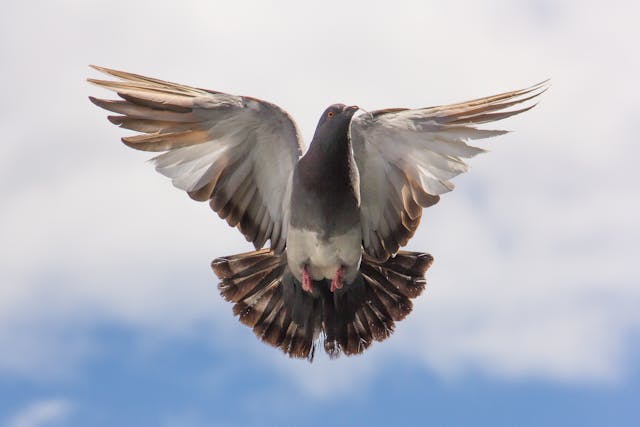The southeast of the United States is steeped in traditions, one of which is dove hunting – a pastime deeply ingrained in Tennessee’s hunting culture. These petite birds, with their swift flight and elusive nature, offer hunters an exciting mix of speed, strategy and precision shooting. The question that often arises though: when does the dove season commence in Tennessee?
Usually divided into three segments, the dove hunting season typically kicks off on September 1st in Tennessee. Subsequent segments follow suit later during fall and winter months. However, these dates are not set in stone as they depend heavily upon regulatory decisions made by the Tennessee Wildlife Resources Agency (TWRA). Despite this variability in timing, there’s no denying that this particular hunt sparks keen interest amongst enthusiasts who look at it both as a seasonal tradition and a herald to a new year brimming with hunting opportunities.
Tennessee’s Dove Hunting Seasons Overview
In the expansive realm of Tennessee, a time of fervent anticipation unfolds amongst hunters – the season for dove hunting. This period, often coined as “dove season tn,” presents an exhilarating yet fleeting escapade. Unfolding in three distinct chapters throughout the year, each segment spans several weeks and aligns with early fall, late fall, and winter respectively.
These temporal divisions are not arbitrary but strategically placed to capitalize on different migratory patterns and shifting weather conditions that influence dove movements.
Each chapter of ‘dove season tn’ lays out a unique tapestry of hunting experiences. The first act during early autumn is typically brimming with thrilling moments as vast flocks of doves pass through Tennessee’s skies, presenting abundant chances for hunters to test their skills. As seasons shift towards winter, strategy gains prominence in the hunt – it is then when doves have etched their winter routines into nature’s calendar.
Regardless of which chapter one participates in; dove hunting within Tennessee remains an honored tradition engraved deeply into its culture—a ritual characterized by shared bonds among participants and fuelled by the adrenaline rush from pursuing these elusive birds.
Key Dates for Dove Hunting in Tennessee
Embarking on the voyage of Tennessee’s dove hunting season demands a comprehensive understanding of pivotal hunting dates. These particular timed events hold substantial sway over the probability of partaking in victorious hunts, especially considering that multiple elements such as meteorological cycles and migratory tendencies can manipulate the dove populace throughout different periods. As a rule, Tennessee’s dove hunting season endorses dawn’s early light and dusk’s late glow as premier moments for pursuit.
Inquiries repeatedly posed by game chase enthusiasts like “What time is most beneficial for dove hunting?” gains heightened relevance. The day’s initial segment, spanning from first light till mid-morning, holds reputation as an ideal span for tracking down doves since they are usually out scouting for sustenance and hydration during this time frame. Similarly, twilight hours commencing roughly 2-3 hours preceding sunset are also viewed as prime times to hunt due to increased activity levels among doves during these phases.
Regulations and Licenses for Dove Hunting in Tennessee

In the Tennessee territory, strict observance of dove hunting regulations is vital for sustaining a balanced ecosystem and facilitating successful hunting endeavours. Amongst frequently sought queries revolves around the dress code – “Is it mandatory to sport orange attire when dove hunting in Tennessee?” To answer succinctly, ‘No’. The esteemed Tennessee Wildlife Resources Agency (TWRA) does not insist on donning hunter orange specifically for dove hunts, unlike deer pursuits where blaze-orange wear is mandated as a safety protocol.
As it concerns licenses, hunters are expected to familiarize themselves with detailed prerequisites before embarking on their hunting journeys. The law within this state mandates that all hunters – excluding those under 13 years and landowners pursuing game on their property – must possess an authentic hunting license. It would be wise to refer to either the annual Tennessee Hunting & Trapping Guide or TWRA’s official digital platform for accurate insights into permits and licensing requirements needed at present. These resources are treasure-troves of information encompassing licenses details, permit specifics, associated fees and even maps showcasing defined regions across the state available for hunting. They serve as indispensable tools aiding any conscientious and judicious dove-hunting enthusiast.
In addition to the above, there are other important regulations and licenses that dove hunters should be aware of:
- The hunting season: Dove hunting in Tennessee is usually divided into three separate seasons. The first begins on September 1st and lasts until late September. The second takes place throughout October, while the third starts in December and ends in January.
- Bag limit: Hunters are allowed to bag a maximum of 15 doves per day during the open season. This limit includes mourning doves as well as white-winged doves.
- Baiting rules: It’s illegal to hunt doves over baited areas or fields where grains have been scattered intentionally for attracting birds.
- Use of firearms: Shotguns used for dove hunting must not hold more than three shells at a time unless it has a plug inserted making it incapable of holding more than this number.
- Hunter education course requirement: Any hunter born after January 1, 1969, is required by law to complete an approved hunter education course before obtaining any TWRA hunting license.
These guidelines help ensure ethical practices among hunters while maintaining safety standards within the community. It’s crucial that every hunter adheres strictly to these laws when embarking on their hunts; doing so will contribute significantly towards preserving our wildlife resources while fostering sustainable hunting traditions across future generations.
For further information regarding licensing requirements or specific queries related to dove-hunting regulations within Tennessee territory, one may reach out directly via email or phone call provided on TWRA’s official website – www.tnwildlife.org – ensuring prompt assistance from dedicated personnel who strive diligently towards promoting responsible outdoor recreational activities across state boundaries.
The Significance of Dove Season in Tennessee
In Tennessee, the pursuit of dove hunting is not merely a leisurely pastime but an activity steeped in cultural importance. It weaves its way through the diverse tapestry of hunting experiences within the state’s borders, offering more than just sport. Its significance extends beyond personal satisfaction, into realms such as wildlife management and economic vitality.
For those who dabble in this unique form of hunting or even for locals looking forward to this season with bated breath – it’s clear that dove hunting carries weight within rural Tennessean communities’ cultural milieu.
The intensity around dove hunting isn’t limited to anticipation and participation alone; it permeates regulatory aspects too. The question often popping up among potential participants: “What kind of license do I need for dove hunting in Tennessee?” The answer lies with the Tennessee Wildlife Resources Agency which requires hunters to acquire a specific permit known as the ‘Tennessee Migratory Bird Permit,’ coupled with a basic Hunting License.
This stipulation, while ensuring adherence to laws and regulations by every hunter on-field, emphasizes responsible practices during hunts. In turn, it underlines how vital the dove-hunting season truly is – painting vivid strokes on its already significant presence on Tennessee’s landscape.
Preparation Tips for Dove Hunting Season
As the dove hunting season descends upon Tennessee, it beckons both novice and adept hunters to contemplate on pivotal strategies for a triumphant quest. The sharpening of shooting prowess and mastery of optimal positioning are indubitable necessities, yet pursuing paid dove hunts in Tennessee unravels distinct avenues. These guided odysseys into the wild enable ardent hunters to tap into reservoirs of expert wisdom, enriching their overall hunting escapade whilst ensuring compliance with local edicts and safety norms.
Strategizing your gear prior to embarking on this adventurous pursuit is paramount. An impeccably maintained shotgun, a snug hunting vest teeming with ample ammunition, efficient camouflage – all these elements synergize towards fostering a bountiful hunt. Furthermore, many veteran hunters who partake in paid dove hunts within the boundaries of Tennessee vouch for employing dove decoys and mojos as effective lures for drawing doves closer. Nonetheless, amidst this exhilarating activity, hunters must pause and ponder over the ecological footprint left behind by their actions – advocating responsible and lawful practices in their pursuit.
Tennessee Dove Hunting: Bag Limit and Possession Limits
The utmost pinnacle of significance in safeguarding the enduring survival of the dove fraternity within Tennessee’s borders is unwavering compliance with bag and possession limits. The numeric confinements for engaging in dove hunting are meticulously computed and vigilantly enforced by none other than the esteemed Tennessee Wildlife Resources Agency. A stringent cap has been set, allowing for a maximum daily haul of 15 doves – an inclusive tally that counts both mourning and white-winged doves combined. This quantified restriction bears witness to a thoughtful equilibrium between indulging sporting interests and ensuring species conservation.
Turning our attention to possession limits pertaining to doves, this refers specifically to the numerical count of these feathered creatures which a hunter may lawfully retain following multiple days immersed in hunting pursuits. In line with Tennessee’s rules, this threshold happens to be thrice that of the daily bag limit – meaning at any point post-hunting, up to 45 doves can find themselves under one’s ownership legally. Enforcement officials frequently conduct impromptu checks on hunters as part of their duty, making sure rules are strictly complied with down to each minute detail.
Those discovered sidestepping these guidelines face severe penalties – underscoring just how pivotal it is not only follow but respect regulations put forth; all in aid preserving wildlife diversity that graces The Volunteer State.
FAQ
The enigma is succinctly resolved as such – one is allowed to ensnare a maximum of 15 doves per diurnal cycle whilst hunting in Tennessee.
Ah yes, indeed. Within Tennessee’s boundaries, your collection of hunted doves must not exceed a total tally of 45 birds.
An excellent inquiry! While it may oscillate annually, traditionally one can expect the curtain to rise on dove hunting festivities in early September and descend again come late November.
To participate in our feathered quarry pursuits across Tennessee’s breadth, you will need both a valid license sanctioning your hunt and an additional permit pertaining specifically to migratory avifauna.
Dove Hunting Season holds substantial importance due to its deep-seated roots within Tennessean tradition, its contribution towards preserving equilibrium within local bird populations and strengthening the cultural fabric that underpins local hunting practices.
Ahead of time ensure you have confirmed all relevant dates with respect to your intended exploits; procured necessary permits; optimized equipment readiness levels; honed shooting skills through practice sessions; scouted prime locales for hunts and fully acquainted yourself with regional regulations governing such pursuits.
The official online portal hosted by none other than The Wildlife Resources Agency offers comprehensive details regarding rules and regulations related to dove hunting in Tennessee.
Regrettably not. Even if your possession tally hasn’t hit its maximum of 45 birds, you still ought not exceed a per day limit of 15 doves – this is an inviolable rule set forth by law.
Indeed so. It is often the case that National Parks and specific wildlife sanctuaries impose restrictions on dove hunting activities. Always cross-check local ordinances before setting off on your journey.
Overshooting these mandated quotas can indeed lead to repercussions ranging from monetary fines, license suspensions, or additional punitive measures as laid out by state wildlife legislation.



